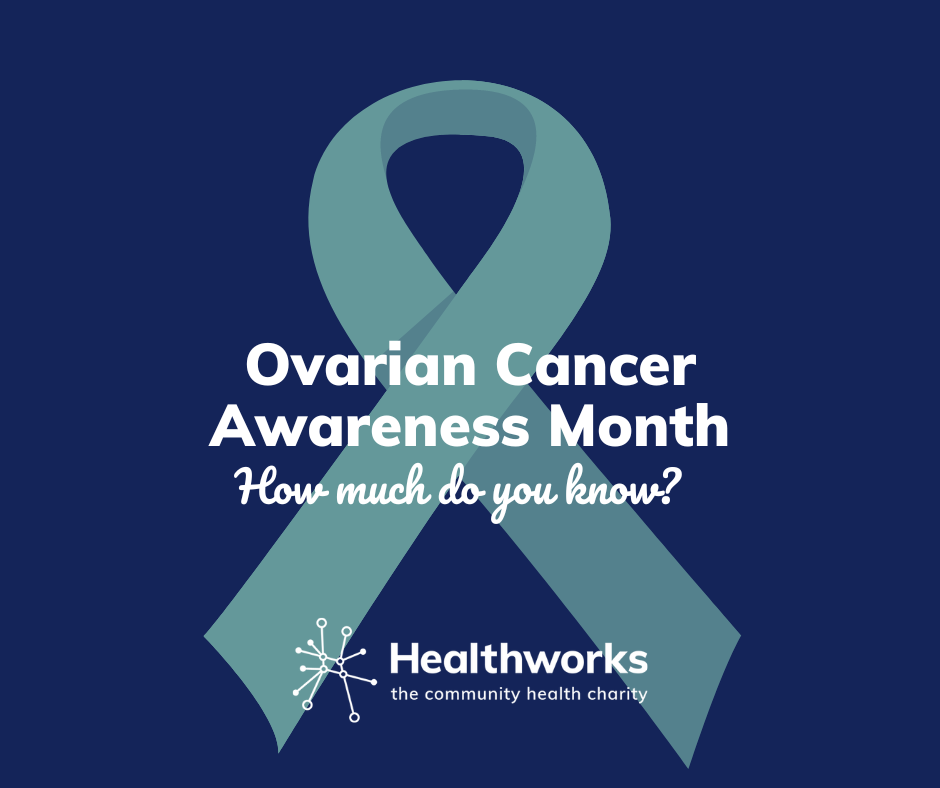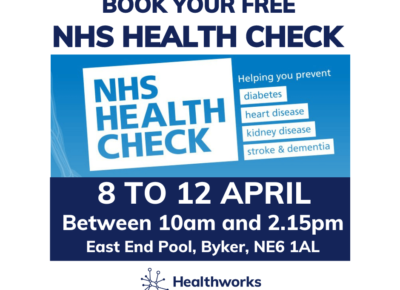Ovarian cancer awareness month

How much do you know about the signs and symptoms, and how to reduce your risk?
Ovarian cancer is when abnormal cells in the ovary begin to grow and divide in an uncontrolled way. They eventually form a growth (tumour). If not caught early, cancer cells gradually grow into the surrounding tissues and may spread to other areas of the body. Ovarian cancer affects the 2 small organs (ovaries) that store the eggs needed to make babies. The symptoms of ovarian cancer, such as bloating, are not always obvious. This means that ovarian cancer is often diagnosed late, but early diagnosis can mean it is more treatable.
Risks and causes of ovarian cancer
There are some factors that can increase your risk of developing ovarian cancer. A risk factor is anything that can increase your risk of cancer. A protective factor is anything that lowers the risk of cancer.Having one or more risk factors doesn’t mean that you will definitely get ovarian cancer.
Getting older
As with most cancers, ovarian cancer becomes more common as you get older. The risk of ovarian cancer increases steeply from around 45 years. And is greatest in those aged between 75 and 79 years.
Inherited faulty genes
Between 5 and 15 out of 100 ovarian cancers (5 to 15%) are caused by an inherited faulty gene. Inherited genes that increase the risk of ovarian cancer include faulty versions of BRCA1 and BRCA2. Faults in these genes also increase the risk of breast cancer. Having relatives with ovarian cancer does not necessarily mean that you have a faulty inherited gene in the family. The cancers could have happened by chance. But women with a mother or sister diagnosed with ovarian cancer have around 3 times the risk of ovarian cancer. This is compared to women without a family history.
If you are worried about your family history of ovarian cancer, speak to your GP. They can tell you whether you might benefit from a referral to a genetics service.
Common symptons:
- feeling full quickly
- loss of appetite
- pain in your tummy (abdomen) or lower part of your abdomen that doesn’t go away
- bloating or an increase in the size of your abdomen
- needing to wee more often
- Other symptoms:
- tiredness that is unexplained
- weight loss that is unexplained
- changes in your bowel habit or symptoms of irritable bowel syndrome, especially if this starts after the age of 50
Watch our Take A Minute video
Main causes of ovarian cancer
The risk of developing ovarian cancer increases with age, with more than half of all cases in the UK in those aged 65 and over. Anyone with ovaries can get ovarian cancer. This includes women, trans men, non-binary people and intersex people with ovaries. You cannot get ovarian cancer if you’ve had surgery to remove your ovaries.
You may have a higher chance of getting ovarian cancer if you:
- inherited a faulty gene, such as the BRCA genes or those linked to Lynch syndrome
- had breast cancer or bowel cancer
- had radiotherapy treatment for a previous cancer
- have endometriosis or diabetes
- started your periods at a young age or went through the menopause late (over 55), or have not had a baby – because these things may mean you’ve released more eggs (ovulated more)
have never used any hormonal contraception, such as the pill or an implant - are taking hormone replacement therapy (HRT)
- are overweight
- smoke
For more information:
Visit our Cancer Awareness page where you can find out more about many other common cancers, and the training we can offer groups, organisations and workplaces.





